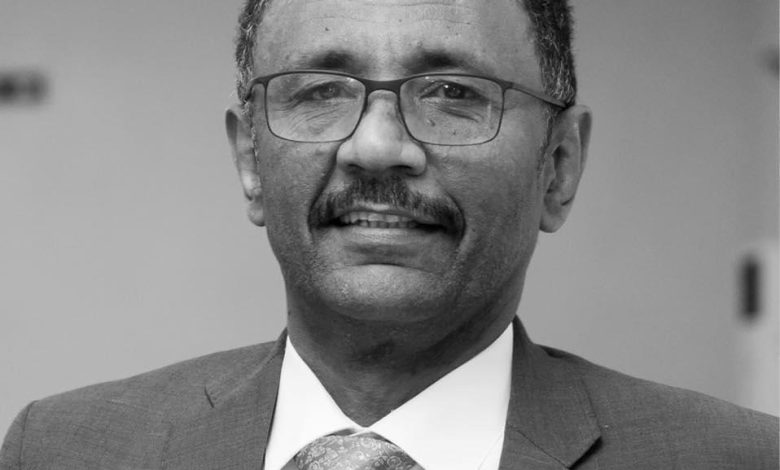About What Happens in Manama: Between Blaming and Regretting (2-3)

Ending the War
By: Mohammed Farouq Salman
Public opinion has been preoccupied with many events regarding what happened in the Bahraini capital, including a meeting between the army leadership and the Rapid Support Forces (RSF), and at the level of the second “man” in each, as if the preoccupation of many in the civilian political movement with ending the war would not have been preoccupied with a meeting at this level, or addressing the desire of the two parties to meet to put an end to it, unlike a meeting in Djibouti between the two leaders.
The desired IGAD summit between the two leaders in Djibouti revealed more about the Rapid Support Forces’ (RSF) unwillingness to immediately engage in a negotiating process, and its leader, after his appearance ended the controversy over his presence alive, preferred to achieve political and diplomatic progress to overcome its confirmed political losses, especially after the expansion of the RSF in Gezira State. The city of Wad Medani fell without a fight, but this did not prevent the continuation of violations by these forces. Far from what this summit could have achieved and the naivety in considering the meeting of the two leaders as an alternative to the negotiations that could take place between the two parties in the presence of their representatives, the leaks came from the meetings that took place in Manama between the two parties at a high level on both sides, and with an international presence that was described as the intelligence leadership in five countries. What was remarkable, was the presence of both Egypt and the Emirates, and apart from the content that was intended by referring to the nature of the meeting and its attendance through its form, and giving it content accordingly, however, the form itself constituted new conditions for reaching an agreement whose content has not yet been disclosed, and is an available alternative to the Djibouti meeting, which has become like a phoenix, according to the performance of IGAD itself and the dispersion of its efforts according to developments in the prospects for other tensions in the region. The crisis between Somalia and Ethiopia is one of its manifestations, but not all of its essence. It is clear that all the leaks that were raised about this alternative meeting in Manama were intended to mislead the content. It has happened that many of the civilian parties calling for an end to the war, and those that want to control it, have agreed for the first time to jump on the Manama meeting between Lieutenant General Shams Al-Din Kabbashi and the Second Commander of RSF, Lieutenant General Abdul Rahim Dagalo, despite the welcome of the Forces of Freedom and Change (FFC). In the past, Jeddah agreed on its terms, but it has now preferred silence and reservation. While Mr. Muzammil Abu Al-Qasim, a sports journalist, who was the first to announce the meeting, exaggerated in using the “Arif Bilumour (The one who knows the matters)” platform, by jumping into determining the content of the meetings. With the intention of parties to downplay the importance of the meeting, and to circumvent its true content in order to spoil it. So, Instead of demanding that the civil and political parties be transparent in announcing what was reached in the Manama negotiations, everyone was active in finding out what happened and preparing to publish a version that would serve their purposes and not the reasons for stopping the war or even continuing it. The coming days will be filled with a turbulent and contradictory discussion of what happened, which is what the nature of these secret meetings allows, if they are not announced as soon as a breakthrough is achieved. This is if the active civil parties do not succeed now in gathering more dust on the meeting and working to keep it secret.
The secret meetings are always intended to reach real meeting points that pave the way for the real success of the negotiations, and not to create premature political propaganda. Despite all reservations about the issue of transparency, the declared negotiations themselves were never a true expression of transparency or commitment to it. On the contrary, the parties’ statements remained in any declared negotiation process (and not limited to the experience in Sudan) it is a continuation of the clash and a threat to the confidence-building process. Any declared negotiations fall under the pressure of not trusting the current options, that is, the clash, whatever its form, and instead of moving towards dismantling it, we find it looking for ways to confirm it, or at least confirm their gains from it! This sometimes increases the cost of war according to the negotiation process, which makes it a continuation of the war in another form. Confirming the gains requires a military balance. It does not matter if it is weak or strong, but what is important is that the two parties are characterized by either strength or weakness according to the military balance alone, and not the conditions of enforcement of the law or preservation of rights and commitment to justice as foundations for agreement – in any civil conflict – not the force that will inevitably throw us into power partnership agreements, unconditional amnesty, lack of covenants and charters, and the legacy of violating them again!
Any secret negotiations in a real way usually first consider dropping the current options, meaning that the parties reach the conviction of the futility of military engagement first, which is something that cannot be reached, as I mentioned above, through a declared negotiation between the two parties, although it is possible if we have a political movement that starts from a principled position through a real consensus that rejects war, which is something we lack, no matter how much the intentions and conditions of the policy itself exist to create such a position within the civil political movement now, at least according to the mutual accusation between two main civilian parties in our contemporary civil division, if any of them is true, this desired consensus will fail, and the war repercussions now may contribute in creating it. But, the cost of the war is now more important than stopping the clash of civilians, even if it is hand-to-hand. What remains before us is the two parties leading the war to drop the option of war as a conviction, and open the way to a negotiating path, which happened more clearly in Manama, away from the bridge of blame that the political movement built and the wall of remorse in which the military forces imprisoned us in a way that will be available to everyone, and indeed it is to a large extent, the Manama meetings discussed a declaration of principles that is more advanced than the Jeddah Declarations in May and October, in terms of its transition from addressing humanitarian issues and protecting civilians in the reality of war to addressing ways to stop the war, and through four features, which we can say main ones. The Declaration of Principles that was reached in Manama meetings addressed the situation in Sudan:
Immediate ceasefire,
All forces will leave the cities and return to their military headquarters, which means placing the forces as they were before April 15, and the exit of the army and other armed forces from politics permanently.
Forming a civilian technocratic government to manage the transition and engaging the civil movement in a political process to achieve the principles of the constitution and law that will govern the peaceful transfer of power and the holding of elections.
The involvement of the army, the RSF and other armed forces, with UN and international technical support, to achieve a professional army in Sudan.
As main points, they are valid as titles for many important details, but what is important is that they serve as beginning conditions for the end of the war, and not all of the conditions necessary for the future of peace. Priority must be given to the conditions for ending the war now according to the rule that to cross the bridge we must reach it first. Without this being a dismissal of any of the issues that are believed to be important, or specifically those created by the war and the violations that accompanied it.



